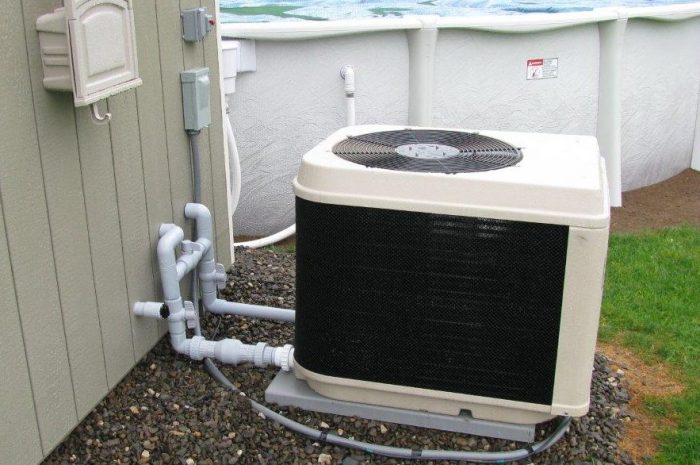The heat pump’s operation consists of removing heat from the air and transferring it to the refrigerant fluid with a motor fan and an evaporator (radiator). The compressor transfers the heat taken from the air to the condenser that heats the pool water. It will be normal then to observe that during the operation of the Heat Exchanger, the air that is insufflated by the fan is cooler than the ambient air.
The hot air around the pump is captured by its mechanism and brought into contact with the water, gradually heating up. It is an exchange of cold air for the hot available in the environment. The appliance comes with hot gas defrost system, like those found in refrigerators, to prevent freezing. There are fully automated models on the market, in which you do all the control through panels installed directly on the device or through a cell phone with internet access.
It is an innovative system, as it facilitates the swimming pool heating process through its automation. When the water reaches the ideal temperature, it turns itself off and turns it back on when necessary. It is easy to install and does not need to be protected from the sun or rain as it is designed to withstand weather changes. It even has protection against UV rays. You can click here for a guide to heat pumps and finding the best contractor to guide you.
The Benefits Of Having A Heated Pool
We have already talked about the types of pool heating available on the market, their characteristics, and which we consider the most advantageous.
Why should you have a year-round heated pool?
Well, the reasons are countless. The most important one, of course, is guaranteed fun in any season. But not only that. There are also several health benefits, scientifically proven.
reduces stress: hot water slows your heart rate, controls your breathing, and calms your body and mind;
relaxes muscles: again, hot water works by dilating blood vessels and relaxing joints;
improves sleep quality: if a hot shower makes you sleep better, imagine taking a dip in a heated pool?
Tip: install the heat pump systems in an outdoor environment, away from trees and plants that might leave it bare. Consider using a thermal cover if you want to save even more. It will help retain heat and therefore keep your pump running for less time.





